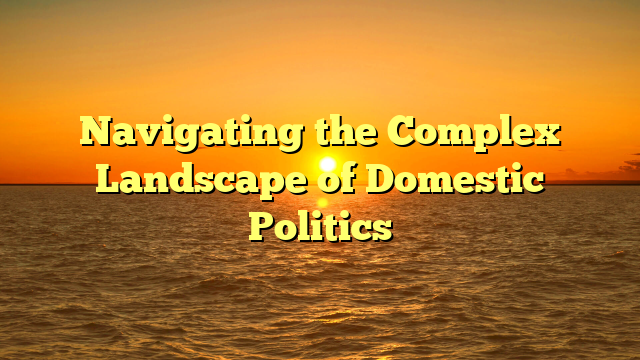Domestic politics refers to the policies, debates, and decisions that occur within a country’s borders, shaping the lives of its citizens and influencing the nation’s direction. In many countries, domestic politics is a dynamic and often contentious arena, where competing interests, ideologies, and visions for the future collide. The nature of domestic political discourse reflects the diversity Pattimura4d of the population, the state of the economy, and the country’s historical and cultural background.
One of the defining features of domestic politics is its focus on governance structures. Whether in a parliamentary democracy, presidential system, or hybrid arrangement, the interaction between the executive, legislative, and judicial branches plays a crucial role in determining policy outcomes. In democratic systems, the political process is ideally characterized by transparency, accountability, and public participation. However, the reality can be far more complex, as partisan rivalries and institutional weaknesses sometimes hinder effective decision-making.
Elections are often at the heart of domestic politics. They serve not only as a means for citizens to choose their leaders but also as a reflection of public sentiment on pressing national issues. Campaign periods typically bring heightened political activity, with parties presenting their platforms and competing for voter support. In this process, debates over economic policy, social welfare, education, and healthcare dominate public discussion. Yet, elections can also reveal deep societal divides, particularly when political polarization runs high.
The economy is perhaps the single most influential factor in domestic politics. Leaders are often judged on their ability to deliver growth, create jobs, and maintain economic stability. Economic challenges, such as inflation, unemployment, or budget deficits, can quickly erode public trust in the government. Conversely, strong economic performance tends to bolster a leader’s approval ratings and strengthen their political standing. Policy debates frequently revolve around how best to balance fiscal responsibility with the need for public investment in infrastructure, social programs, and innovation.
Social issues also command a central place in domestic politics. Matters such as education reform, healthcare accessibility, gender equality, and minority rights often generate intense debate. Political leaders must navigate the delicate task of balancing progressive reforms with the preservation of cultural traditions and national identity. The way these issues are addressed can significantly influence public perception, particularly among younger and more socially active voters.
Another critical aspect of domestic politics is the role of media and public opinion. In the digital age, information spreads faster than ever, and social media platforms have become powerful tools for political communication. While this has increased public engagement, it has also given rise to misinformation, echo chambers, and the manipulation of narratives. Politicians must therefore operate in an environment where public opinion can shift rapidly and where missteps are amplified in real time.
Corruption and governance remain persistent challenges in many countries. Allegations of misuse of public funds, nepotism, and abuse of power undermine trust in political institutions. Anti-corruption campaigns are often popular among citizens, but their effectiveness depends on the independence of law enforcement and the judiciary. Strengthening the rule of law is essential for building long-term political stability and fostering investor confidence.
Ultimately, domestic politics is about the constant negotiation between competing interests and visions for the nation’s future. While political disputes can be divisive, they are also a sign of an engaged citizenry and a functioning democratic process. The challenge lies in ensuring that these debates lead to constructive outcomes that serve the common good rather than entrenching division. In a rapidly changing world, the resilience and adaptability of a country’s political system will determine its ability to meet the demands of its people and navigate the uncertainties ahead.
